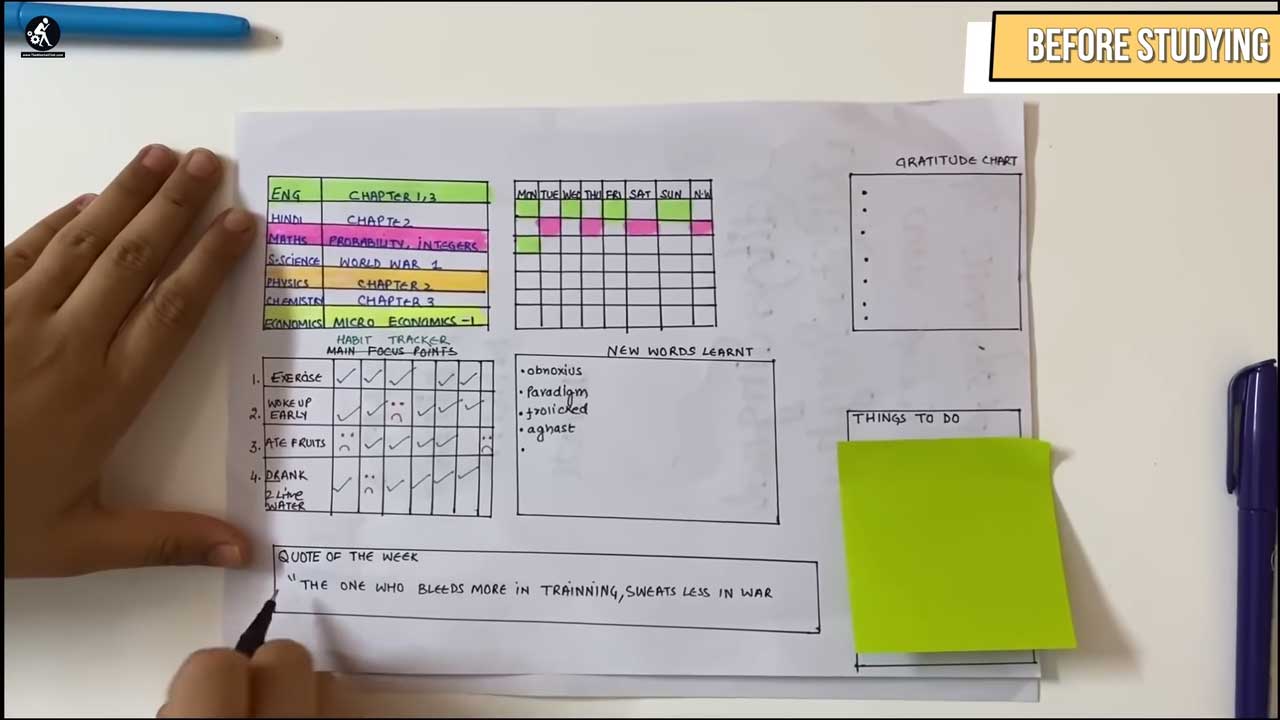When exams are knocking on your door, it can be difficult for you to prepare. The situation becomes even more complicated when you have to study a lot of learning material. The good news is you can study all your important topics in the last few weeks before your assessment. After that, however, you will need to strategize and plan things to approach last-minute exam preparation correctly. Only then will you understand important concepts in a few days.
In this blog, we will reveal the most effective techniques to help you prepare when exams are near:
1. Remain Calm
If your exams are near, don’t panic about completing all the work in such a short amount of time. You can achieve your academic goals by believing in yourself. That’s because anxiety, stress, and overthinking can make it difficult to understand concepts and affect your concentration.

If you are stressed, take a 15-minute break every 2 hours to relax your mind. During this time, you can:
- Exercise
- Watch a funny video
- Call your classmate
However, make sure not to exceed your break time—set a timer of 15 minutes and continue your studies once relaxation time is over.
2. Gather Your Materials
Before you sit down to study, ensure you have everything you will need. For instance, keep a notebook, the course outline, books, some pens, and your learning material. Prepare a neat study space by organizing all these things. It will help you save time.

3. Find a Quiet Spot
Studying in a group with your friends can help you understand complicated subjects. However, group study can be distracting and may not be the best option when your exams are in a few weeks. You can utilize your precious time more productively by organizing your study spot away from friends, laptops, smartphones, and other distractions. If you use your mobile during your studies, set your phone to silent so you can stay focused.
4. Time Management
Prepare a schedule to utilize the remaining time to prepare and revise your courses. First, keep track of what you have already covered and which topics remain. Then, while creating your study plan, distribute time equally for each subject. So, don’t try to cover different subjects at once. Instead, divide your days for every course you need to study.

5. Use Flow Charts and Diagrams
A great way to speed up your learning process is to use visual aid while studying. First, review your course literature and write important points when starting a topic. Then, transform those concepts into a diagram. After that, it will be easy for you to remember theories with the help of flowcharts and diagrams.
6. Focus More on the Core Material
Segment your course material into core material and elaborative material.
Core material often includes:
- Graphs
- Important diagrams
- Formulae
- Theorems
- Principles
Elaborative material comprises of following things:
- Illustrations
- Quotes
Usually, 80% of exam questions come from the core material. So, if you are struggling to complete your syllabus, focus more on that part of the curriculum. In addition, review the previous years’ question papers and concentrate on topics most likely to be asked in the exam.
7. Research What Your Test Will Be Like
When studying for exams, you need to know the test format. For instance:
- Will you need to write an essay or answer MCQs?
- What is the number of questions?
- What is the time frame to complete the examination?

Once you learn about these things, it will be easy to prepare yourself for assessment. In addition, consult with your teacher about what course material helps solve the questions and which topics are essential for exams. Then you can focus on the right parts.
8. Study With Summaries
So, now you’ve figured out the important topics you need to learn. First, search online. You will easily find tons of videos or presentations summarising key concepts. Then, use those to get through chapters since you won’t have time to go through full-length, comprehensive descriptions. In addition, visit websites, such as CliffsNotes or SparkNotes, for literature notes and test preparation. Or you can search for revision guides to help you learn the core concepts. Finally, Google summarised lecture slides to learn more material quickly.
9. Make Custom Revision Plans
Your revision plans should match the exam type. Sure, you should know the course material well. However, that won’t be of much use if you cannot answer all the questions in time. For instance, if you are preparing for essay-based exams, practice formatting, writing catchy titles, and so on. However, if you’ll be attempting an MCQ-based paper, focus on guessing the right options and timing yourself. The same goes for CBEs, i.e., improve your typing speed until you can complete the paper within the given time limit. Prepping for listening-based tests also requires custom plans. For example, if English isn’t your first language, you may have a problem with the narrator’s accent. Download audiobooks and clips to help you with it.

That said, if you still need help preparing your essay plan, you can consult with an academic service company. If you are wondering who is the best option to pay someone to write my essay, you can connect with UK Essay Writers. We have a team of qualified Ph.D. holders who are experts in your subjects. So, hire them and achieve excellent results in all your courses.
10. Teach a Friend
Another great way of memorizing key concepts is to teach them to someone else. Once you have a firm grip on a subject, plan a study session and assist your friends. Encourage your friends to ask questions if they have any misconceptions. Their questions may also encourage you to think from a different perspective. All this will help you in describing the answers in exams efficiently.

11. Whip Up Some Flashcards
Use flashcards for effective learning. These are very helpful because when you prepare them, you will learn how to write concise points to fit into a small area. The advantage of using flash cards is you can review important information quickly.
Usually, flashcards have questions on one side and answers on the other. You can also draw diagrams to learn complicated concepts more efficiently. In addition, flashcards are extremely helpful in memorizing facts or quotes. You can prepare yourself for subjects, such as English and religious studies, with the help of flashcards because you often need to quote to answer various questions.
Last Word
If your exams are close, stay confident even when you have only a few weeks and are unprepared. It may seem impossible, but you can follow some strategies to achieve academic excellence. After reading this blog, you will be able to cover your syllabus swiftly and prepare in the last few weeks. However, you may also have essays and assignments to submit. Many students prefer to hire online academic websites for that. If you, too, want to save time and score well in your course, contact UK Essay Writers and ask our professional writers to “write my essay online.”





























